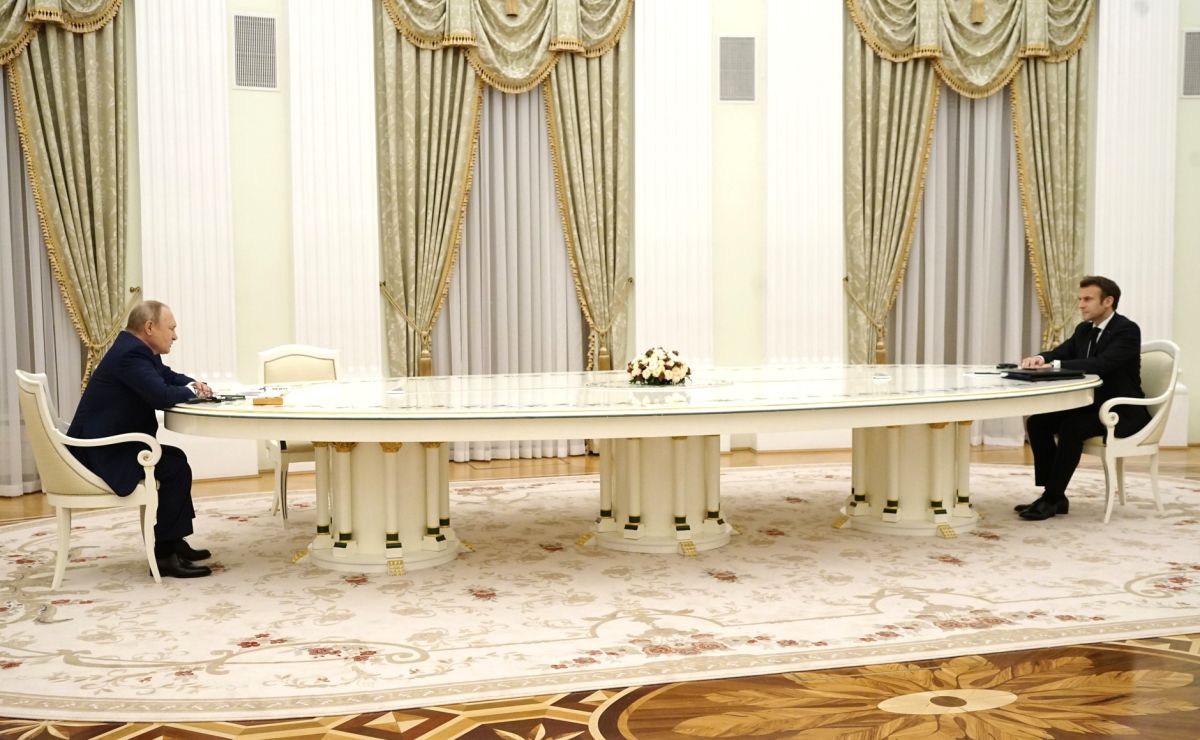NATO expansion or not: This is a war of Putin’s making

On February 24, Europe woke up to the news that President Putin had sanctioned a full-scale invasion of Ukraine. Within minutes, social media platforms were flooded with videos of Russian cruise missiles bombarding military targets. A distraught father, determined to defend his nation, was recorded bidding his wife and daughter farewell. All the while, mobile crematoriums accompanied Russian troops into the heat of battle. War in Europe seemed to be raging once more.
Yet, in the weeks leading up to the attack, debate had been rife about who bore responsibility for this latest continental confrontation. Whilst many pointed fingers at the Kremlin, notable figures such as Peter Hitchens, Jeremy Corbyn and Nigel Farage had focused on NATO’s expansion into Eastern Europe – with Farage berating the West for “poking the Russian bear with a stick.” It was a vivid metaphor but it was also patent nonsense: this is a war solely of Putin’s making.
First, diplomacy was still a meaningful option until the very last, and the West remained intent on pursuing it – even if it was difficult to imagine what middle-ground might be found. Few will forget President Macron hurrying to Moscow, indulging Putin’s absurd ramblings across a ridiculously long table. Putin had arguments that required proper consideration, as Hitchens has laid out, not least genuine anxieties about security along Russia’s western flank.
But Putin gave up on these as soon as he declared a full-scale invasion, trading diplomatic talks for fleets of attack helicopters. The hypocrisy was breath-taking – how could a President so concerned about the security of his own borders have so blatantly violated Ukraine’s? But then this is a tyrant with a track record; after all, who can forget the Russo-Georgian war of 2008?
Putin’s decision to duck diplomacy was also symptomatic of an increasingly irrational outlook, even for a selfish dictator. His rhetoric wasn’t just bellicose in the weeks leading to war, it also become increasingly erratic and inconsistent. Back in 2002, as Kyiv began its application for NATO membership, Putin appeared sanguine: “Ukraine is an independent, sovereign nation state and it will choose its own path to peace and security.” One can only wonder how, two decades later, this ageing dictator has grown to detest the right of another nation to determine ‘its own path.’
In fact, we should be pretty suspicious of any thesis that pins this war on NATO expansion. While many commentators have favoured this narrative, Putin’s hour-long rant on February 21 didn’t mention NATO until about 40 minutes in. Instead, he focused on the supposed illegitimacy of Ukraine’s sovereignty, suggesting it was “madness” that former republics of the Soviet Union had been allowed to leave: “Ukraine has never had the traditions of its own statehood,” he suggested.
This framing harks back to comments he made in 2005 when he described the collapse of the USSR as the “greatest geopolitical catastrophe of the century.” In searching for motives for war, Putin’s ardent desire to resurrect a lost empire cannot be overlooked.
Neither should we ignore Putin’s own backyard. Military escapades carry risk, but they can also distract attention from domestic problems. And Russia has plenty. Despite the Kremlin’s grandiose propaganda, Russia today boasts a GDP smaller than that of South Korea – and it is rapidly tumbling down the global economic tables. Couple this with its corrupt oligopolist business culture – there are more rubles held in western banks today than in Russian banks – and the stench of decline is unmistakable.
The social consequences are stark too. Russia’s birth rate has collapsed since the 1970s, with a population predicted to halve within the next few decades. With domestic crises on so many fronts, which tyrant wouldn’t be attracted to the unifying, patriotic call of battle? Let’s call it the Galtieri playbook.
Putin today is driven by legacy and ego. And the sixty-nine-year-old president is in a hurry. His dreams of a reunified Soviet Union have so far been unrealised and he is playing his final, desperate, bloody card. So let’s avoid the temptation to shift the blame elsewhere. This is a criminal invasion, a criminal war – and it is a conflict solely of Putin’s making.







